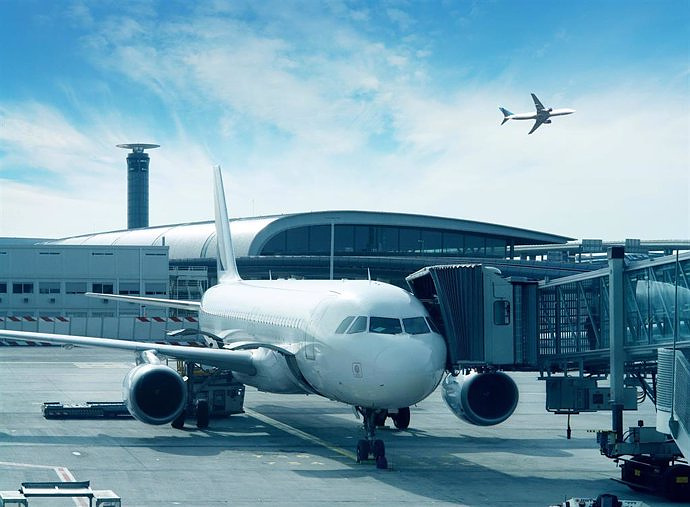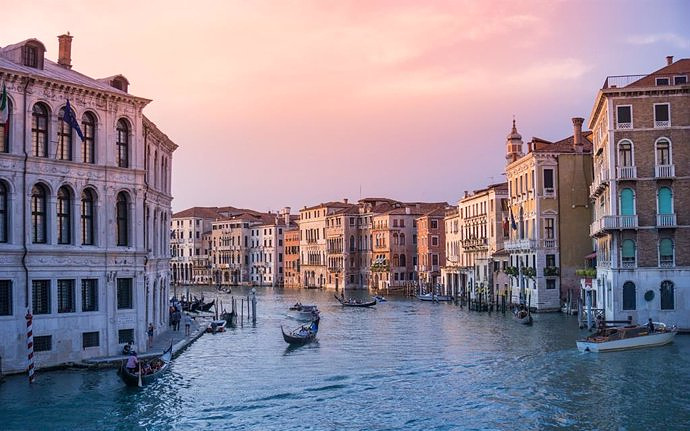MADRID, 31 May. (EUROPA PRESS) -
The NGO Amnesty International (AI) has warned this Monday that the restrictions imposed due to the coronavirus pandemic around the world have caused greater discrimination against already marginalized groups, among which are LGTBI people, drug addicts and homeless, among others.
In a report, the organization lamented that the measures taken to prevent the spread of the virus have exposed these groups to "more discrimination and human rights abuses", in addition to an increase in violence at the hands of the security forces.
This would also have contributed to even less access to essential services such as food, health care and housing. After conducting a survey, AI has indicated that nearly 69 percent of the organizations surveyed estimate that the responses given by the States to COVID-19 have "aggravated the negative consequences of pre-existing laws and regulations that criminalized and marginalized people with those who work".
Thus, nearly 90 percent consider that the communities with which they work have been "specifically affected" or have suffered "disproportionate consequences" from the application of measures against the coronavirus.
Among other punitive measures, organizations have mentioned the widespread use of fines, arrests, reprimands, written warnings and police orders. "Although the measures taken against COVID-19 have varied from country to country, the approaches of governments to tackle the pandemic have had a common effect. The excessive emphasis on the use of punitive sanctions against people for not complying with regulations, Instead of supporting them to better enforce it, it had a very disproportionate effect on those already facing systematic discrimination," said Amnesty International's Director General for Policy, Rajat Josla.
"When governments use punitive approaches to enforce public health measures, they simply become more difficult to enforce. People who lost their livelihoods overnight and those who are homeless have been criminalized for failing to comply with public health measures. COVID-19, instead of receiving support to access housing or other essential services," he asserted.
Amnesty has also warned that groups that were already subject to excessive police control before the pandemic have suffered discrimination, unlawful use of force and arbitrary arrests by security forces.
According to the Mexican human rights organization Elementa, the country's punitive "war on drugs" has allowed police forces, using COVID-19-related measures, to attack people for drug use or possession.
"In an alarming case that sparked widespread protests, a construction worker, who was under the influence of drugs at the time, was detained in the state of Jalisco, allegedly for not wearing a mask. The man died in custody days later. His body was full of bruises and a bullet wound in his leg," the NGO said.
Amnesty has further stated that the use of punitive measures has created "additional barriers to accessing essential services and support, especially for people experiencing poverty and systematic discrimination."
"Instead of resorting to punitive measures that place all the responsibility and blame on people who already suffered systematic discrimination, governments should have focused on protecting the human rights of all people and ensuring that marginalized communities have universal access to medical services and essential services for their protection," said Josla.
In this regard, he stressed that this is a "crucial issue that governments must take into account when negotiating a treaty to improve prevention, preparedness and response to the pandemic under the auspices of the WHO". "Placing Human Rights at the core of government efforts to address public health emergency responses is not an optional consideration, it is an obligation," she insisted.

 Exploring Cardano: Inner Workings and Advantages of this Cryptocurrency
Exploring Cardano: Inner Workings and Advantages of this Cryptocurrency Seville.- Economy.- Innova.- STSA inaugurates its new painting and sealing hangar in San Pablo, for 18 million
Seville.- Economy.- Innova.- STSA inaugurates its new painting and sealing hangar in San Pablo, for 18 million Innova.- More than 300 volunteers join the Andalucía Compromiso Digital network in one month to facilitate access to ICT
Innova.- More than 300 volunteers join the Andalucía Compromiso Digital network in one month to facilitate access to ICT Innova.-AMP.- Ayesa acquires 51% of Sadiel, which will create new technological engineering products and expand markets
Innova.-AMP.- Ayesa acquires 51% of Sadiel, which will create new technological engineering products and expand markets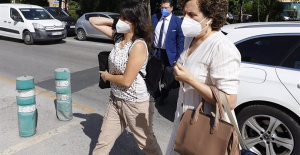 Juana Rivas's legal team manages to repeat the trial "that separated the brothers" in Italy
Juana Rivas's legal team manages to repeat the trial "that separated the brothers" in Italy The New York Justice annuls Harvey Weinstein's conviction for sexual crimes and orders a new trial
The New York Justice annuls Harvey Weinstein's conviction for sexual crimes and orders a new trial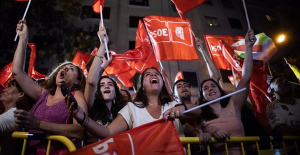 Socialist militants promote a large demonstration in support of Sánchez on Saturday in Ferraz
Socialist militants promote a large demonstration in support of Sánchez on Saturday in Ferraz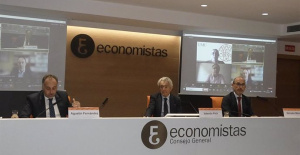 Families with average income allocate a third of their income to paying taxes, according to economists
Families with average income allocate a third of their income to paying taxes, according to economists How Blockchain in being used to shape the future
How Blockchain in being used to shape the future Not just BTC and ETH: Here Are Some More Interesting Coins Worth Focusing on
Not just BTC and ETH: Here Are Some More Interesting Coins Worth Focusing on Retrópolis brings the golden age of video games and computing to the UPV
Retrópolis brings the golden age of video games and computing to the UPV Looking for video games that value the neighborhoods of Valencia
Looking for video games that value the neighborhoods of Valencia UPV researchers improve the efficiency of air conditioning systems using a geothermal heat pump
UPV researchers improve the efficiency of air conditioning systems using a geothermal heat pump València is committed to citiverse and smart tourism to be "the reference technological hub of the Mediterranean"
València is committed to citiverse and smart tourism to be "the reference technological hub of the Mediterranean" A million people demonstrate in France against Macron's pension reform
A million people demonstrate in France against Macron's pension reform Russia launches several missiles against "critical infrastructure" in the city of Zaporizhia
Russia launches several missiles against "critical infrastructure" in the city of Zaporizhia A "procession" remembers the dead of the Calabria shipwreck as bodies continue to wash up on the shore
A "procession" remembers the dead of the Calabria shipwreck as bodies continue to wash up on the shore Prison sentences handed down for three prominent Hong Kong pro-democracy activists
Prison sentences handed down for three prominent Hong Kong pro-democracy activists ETH continues to leave trading platforms, Ethereum balance on exchanges lowest in 3 years
ETH continues to leave trading platforms, Ethereum balance on exchanges lowest in 3 years Investors invest $450 million in Consensys, Ethereum incubator now valued at $7 billion
Investors invest $450 million in Consensys, Ethereum incubator now valued at $7 billion Alchemy Integrates Ethereum L2 Product Starknet to Enhance Web3 Scalability at a Price 100x Lower Than L1 Fees
Alchemy Integrates Ethereum L2 Product Starknet to Enhance Web3 Scalability at a Price 100x Lower Than L1 Fees Mining Report: Bitcoin's Electricity Consumption Declines by 25% in Q1 2022
Mining Report: Bitcoin's Electricity Consumption Declines by 25% in Q1 2022 Oil-to-Bitcoin Mining Firm Crusoe Energy Systems Raised $505 Million
Oil-to-Bitcoin Mining Firm Crusoe Energy Systems Raised $505 Million Microbt reveals the latest Bitcoin mining rigs -- Machines produce up to 126 TH/s with custom 5nm chip design
Microbt reveals the latest Bitcoin mining rigs -- Machines produce up to 126 TH/s with custom 5nm chip design Bitcoin's Mining Difficulty Hits a Lifetime High, With More Than 90% of BTC Supply Issued
Bitcoin's Mining Difficulty Hits a Lifetime High, With More Than 90% of BTC Supply Issued The Biggest Movers are Near, EOS, and RUNE during Friday's Selloff
The Biggest Movers are Near, EOS, and RUNE during Friday's Selloff Global Markets Spooked by a Hawkish Fed and Covid, Stocks and Crypto Gain After Musk Buys Twitter
Global Markets Spooked by a Hawkish Fed and Covid, Stocks and Crypto Gain After Musk Buys Twitter Bitso to offset carbon emissions from the Trading Platform's ERC20, ETH, and BTC Transactions
Bitso to offset carbon emissions from the Trading Platform's ERC20, ETH, and BTC Transactions Draftkings Announces 2022 College Hoops NFT Selection for March Madness
Draftkings Announces 2022 College Hoops NFT Selection for March Madness






